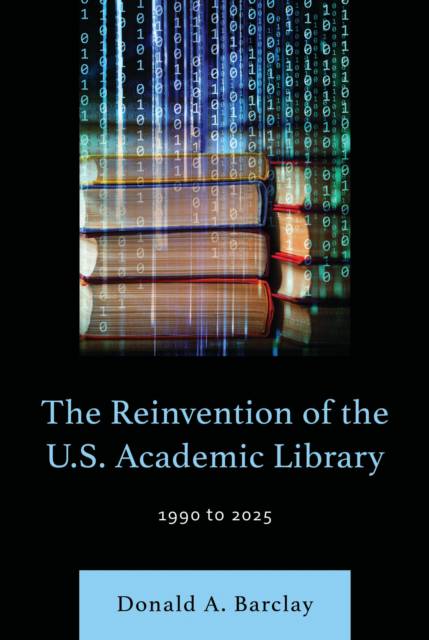
- Retrait en 2 heures
- Assortiment impressionnant
- Paiement sécurisé
- Toujours un magasin près de chez vous
- Retrait gratuit dans votre magasin Club
- 7.000.0000 titres dans notre catalogue
- Payer en toute sécurité
- Toujours un magasin près de chez vous
144,45 €
+ 288 points
Description
Focusing on U.S. academic libraries, The Reinvention of the U.S. Academic Library begins by providing a concise history of the traditional role and function of academic libraries from their earliest times up to the dawn of the Digital Age and the spread of digital technology into all aspects of academic research and scholarly communication. This introduction is followed by chapters analyzing how digital technology has transformed, over the course of a few swift decades, not only the role and function of academic libraries, but also the nature of scholarly communication itself.
Specifically, The Reinvention of the U.S. Academic Library will consider how digital technology has changed the way academic libraries:- Acquire and exercise bibliographic control over collections.
- Provide equitable access to information. Allocate and utilize library space. Instruct and guide students, faculty, and others.
- Relate to the larger academic and scholarly publishing communities. Sustain scholarly communications.
Spécifications
Parties prenantes
- Auteur(s) :
- Editeur:
Contenu
- Nombre de pages :
- 224
- Langue:
- Anglais
Caractéristiques
- EAN:
- 9781538183199
- Date de parution :
- 10-07-25
- Format:
- Livre relié
- Format numérique:
- Genaaid
- Dimensions :
- 178 mm x 254 mm
- Poids :
- 598 g

Seulement chez Librairie Club
+ 288 points sur votre carte client de Librairie Club
Les avis
Nous publions uniquement les avis qui respectent les conditions requises. Consultez nos conditions pour les avis.





